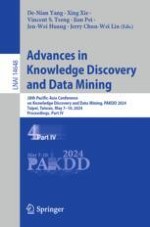2024 | OriginalPaper | Chapter
Agent-Based Simulation of Decision-Making Under Uncertainty to Study Financial Precarity
Authors : Pegah Nokhiz, Aravinda Kanchana Ruwanpathirana, Neal Patwari, Suresh Venkatasubramanian
Published in: Advances in Knowledge Discovery and Data Mining
Publisher: Springer Nature Singapore
Activate our intelligent search to find suitable subject content or patents.
Select sections of text to find matching patents with Artificial Intelligence. powered by
Select sections of text to find additional relevant content using AI-assisted search. powered by
